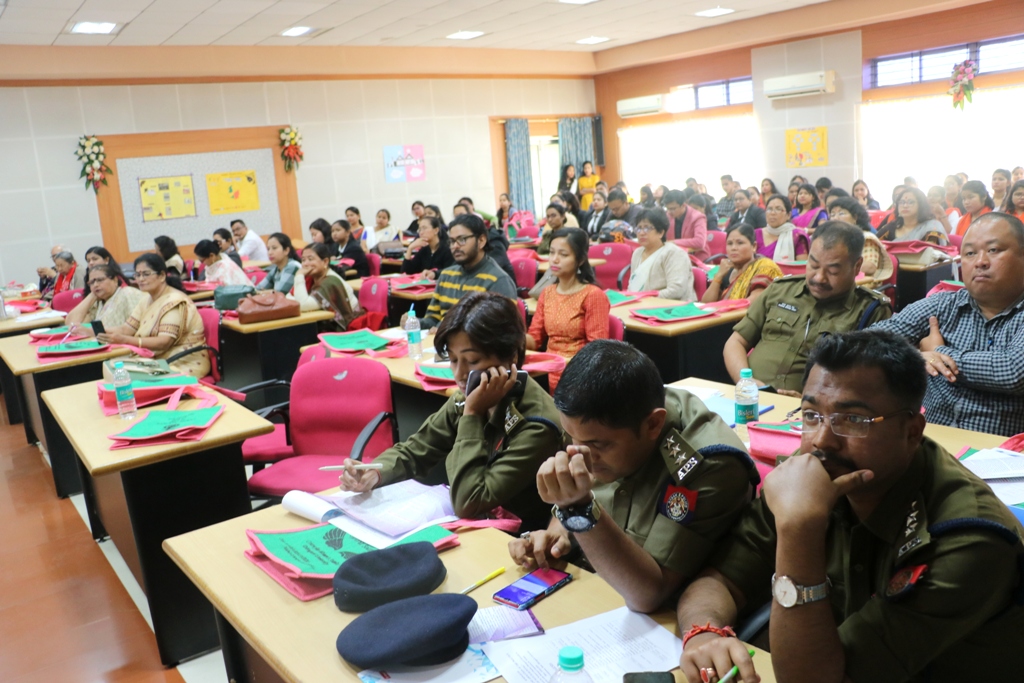On 25th February, 2020, the Centre for Women’s Studies, Dibrugarh University, in collaboration with National Commission for Women (NCW) organised a one-day seminar titled “Prevention and Abolition of the Practice of Witch Hunting” at Indira Miri Conference Hall, Dibrugarh University. The seminar was attended by faculty members and students from various neighbouring universities and colleges along with people from various walks of life. The program commenced with a welcome address delivered by Dr. Nasmeem Akhtar, Chairperson, Centre for Women’s Studies, Dibrugarh University in which she highlighted the importance of organising such a seminar and acknowledged the dedication and hard work of various past and present members without whom the centre would not have achieved the recognition it has achieved today. Following her, Prof. Ranjit Tamuli, Vice-Chancellor, Dibrugarh University, too welcomed the audience and addressed the issue of prevalence of witch hunting and witchcraft in North East India. He maintained that the lack of proper education among indigenous people and the government’s failure to provide required aids can be considered two of the primary reasons behind the birth of such a heinous crime. Shrimati Chandramukhi Devi, Member, National Commission for Women (NCW) in her speech shared multiple stories of witch hunting from Adivasi areas of heartland India. She stressed on the fact that laws against witch hunting are not enough to curb its prevalence. She emphasised that activists and volunteers must organise awareness programs in rural places where witch hunting largely takes place. According to her, witch hunting can be completely eradicated only by collective efforts of both common people and the police. Prof. Aparna Dutta Mahanta, Founder Director of the Centre for Women’s Studies, Dibrugarh University urged the audience not to look at witch hunting as an isolated issue but within a larger web of women-related crimes and she also pointed out how women in matrilineal societies too become victims of witch hunting.
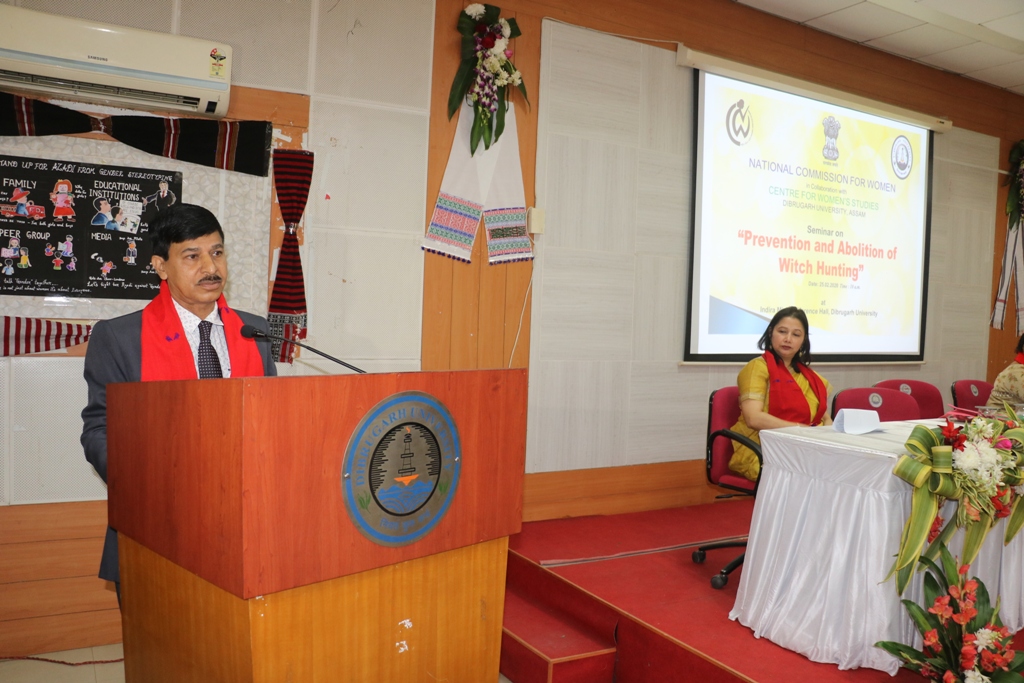
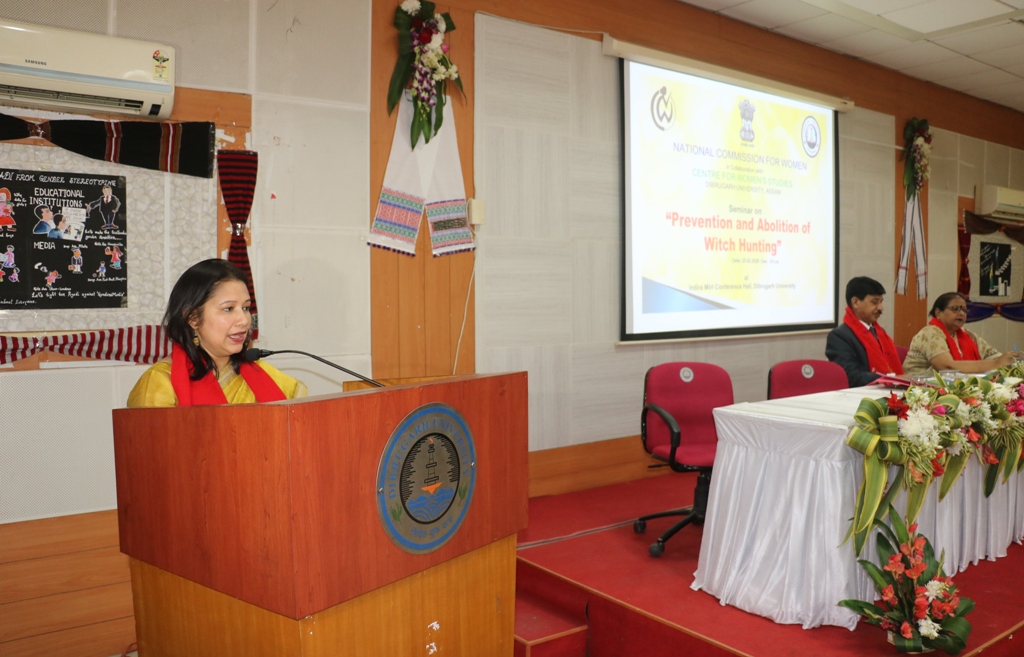

After a brief tea break, the audience gathered to attend the first panel discussion of the day chaired by Prof. Jahnabi Gogoi, Department of History, Dibrugarh University. The panelists for the discussion included Ms. Gita Bhattacharya from Assam Mahila Samata Society, noted social activist Dr. Birubala Rabha and Dr. Chandan Kumar Sarma, Head, Department of History, Dibrugarh University. Ms. Bhattacharya shared some notable findings and reports of Assam Mahila Samata Society and made the audience aware of how the organisation is incessantly trying to curb witch hunting in the district of Goalpara by creating several sanghas and cadres. She enlightened the audience regarding which kind of women are often subjected as witch and how multiple generations of the subjected women’s families are ostracised by the community. She also appealed to frame rules for the implementation of laws against witch hunting and the need to make children aware of it at the school level. Dr. Birubala Rabha, in her zealous speech, shared her journey from being a victim to becoming an activist against witch hunting and witchcraft. She believes that having compassion towards ostracised women can help a lot in doing away with witch-hunting. Dr. Chandan Kumar Sarma’s speech dealt with the need to closely examine various narratives when it comes to witch-hunting and numerous reasons of failure behind implementation of The Assam Witch Hunting (Prohibition, Prevention and Protection) Act. His speech also focused on the roles educational institutions can play in abolition of the practice of witch-hunting. Following Dr. Sarma, Aparna Bora from Alok Abhiyan, an organisation currently active in the Charaidew district of Assam, talked about the limitation of discussing witch hunting in a closed academic setting and the need of having more awareness programs in rural areas. Moreover she advocated for conscious battling of superstitions that we come across on a regular basis that eventually forms the base for crimes like witch-hunting to triumph.
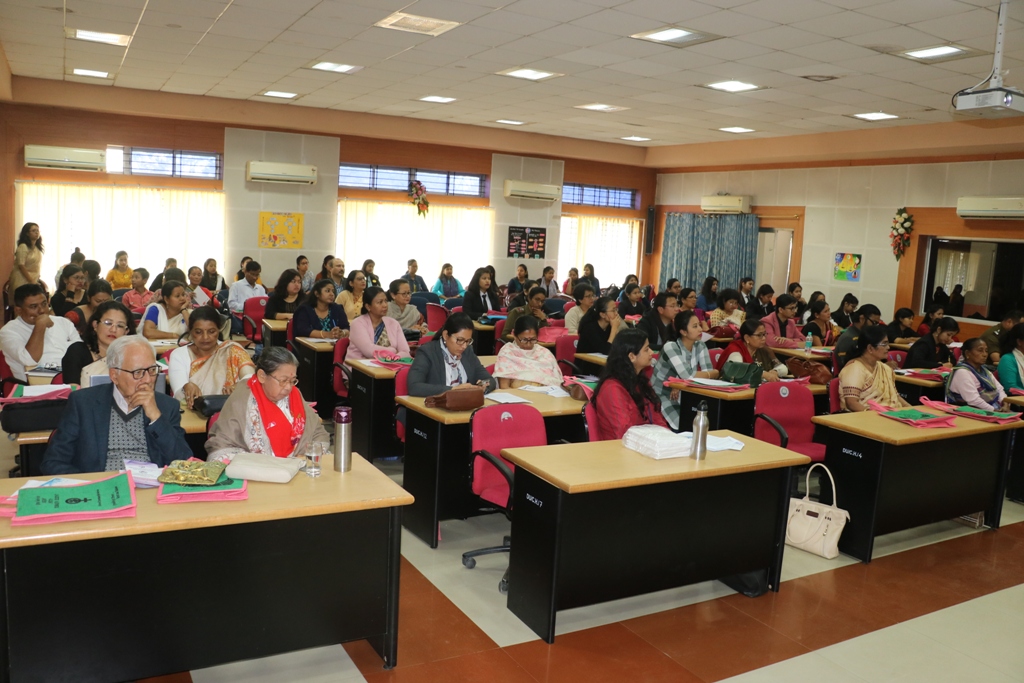

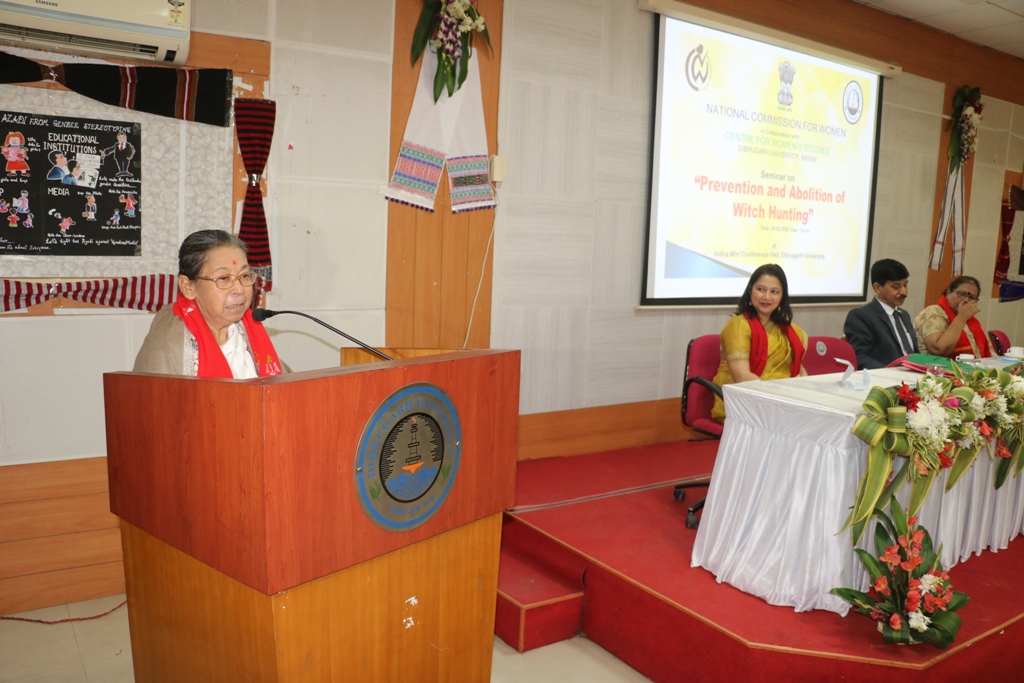

Post lunch, in the second panel discussion chaired by Dr. Chandan Kumar Sarma, Dr. Nazrana Ahmed, Senior Advocate of Dibrugarh Bar Association, extensively talked about the need of having a law like The Assam Witch Hunting (Prohibition, Prevention and Protection) Act and about the various provisions of it. Another panelist, Ms. Chitralekha Baruah from Assam State Legal Services in her speech focused on the loopholes of the law and the areas in which attention is still required. She also talked about the lack of awareness and the often ignored reasons behind it regarding the law amongst the less educated people in rural areas. However, the highlight of the second panel discussion was the experiences shared by police personnel who have dealt with various witch hunting cases. Along with Ms. Pallavi Mazumder, DSP (Dibrugarh), Mr. Pranab Pegu and Mr. Mujaffar Hussain, DSP (Biswanath Chariali) shared their first-hand experiences of being present at crime scenes involving witch-hunting, various problems they face when they arrive on location and when it comes to arresting people of a community. In the final session for the day, titled Way Forward, the students and faculty members shared their experiences of attending the seminar and interacted with the distinguished panelists from both the sessions. The vote of thanks was delivered by Ms. Shalini Singh from National Commission for Woman and the seminar came to an end with the singing the national anthem of India.


